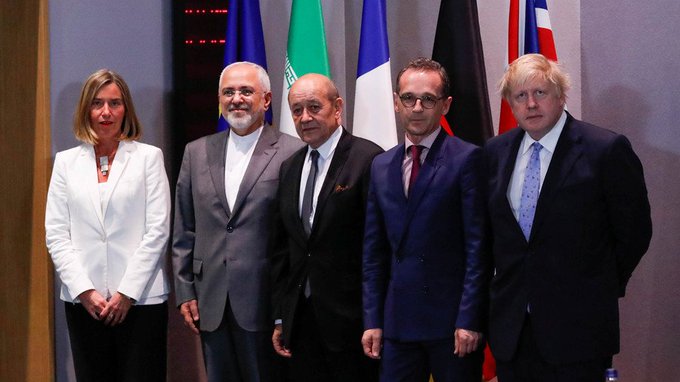Europe
to ditch US dollar in payments for Iranian oil – source
16
May, 2018
The
European Union is planning to switch payments to the euro for its oil
purchases from Iran, eliminating US dollar transactions, a diplomatic
source told Sputnik.
Brussels
has been at odds with Washington over the US withdrawal from the Iran
nuclear deal, which was reached during the administration of Barack
Obama. President Donald Trump has pledged to re-impose sanctions
against the Islamic Republic.
“I’m
privy to the information that the EU is going to shift from dollar to
euro to pay for crude from Iran,” the source told the agency.
EU and Iran to keep nuclear deal in place on.rt.com/95cf
Earlier
this week, EU foreign policy chief Federica Mogherini said that the
foreign ministers of the UK, France, Germany, and Iran had agreed to
work out practical solutions in response to Washington’s move in
the next few weeks. The bloc is reportedly planning to maintain and
deepen economic ties with Iran, including in the area of oil and gas
supplies.
Mogherini
stressed that the sides should jointly work on the lifting of
sanctions as an integral part of the historic nuclear deal. “We're
not naive and know it will be difficult for all sides.”
The
Iran nuclear deal, known as the Joint Comprehensive Plan of Action
(JCPOA), was sealed three years ago in Vienna between Tehran and the
P5+1 powers (China, France, Russia, UK, US, plus Germany). The
agreement saw decades-long international sanctions lifted in exchange
for Iran curbing its controversial nuclear program. On January 16,
2016, the parties to the deal announced the beginning of its
implementation.
Lifting
of international sanctions gave the Islamic republic access to the
world's markets for the first time in nearly four decades. Since then
Tehran managed to significantly to raise its exports of crude.
However,
oil is pegged to the US dollar on international markets, making it
difficult for Iran's partners to make payments for crude and for
Tehran to receive them. Switching to alternative settlement
currencies allows both sides to continue trading despite US
sanctions.





No comments:
Post a Comment
Note: only a member of this blog may post a comment.